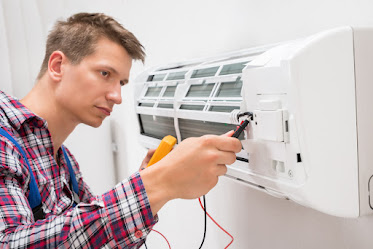What to know before installing an air conditioner
The air conditioner industry has changed drastically over the years but one thing that hasn't changed is how essential it is for homeowners to do their research before purchasing an air conditioning unit. Not knowing what you're getting into can lead to costly mistakes like having your brand new system break down in less than a year of use due to improper installation or lack of maintenance, which could cost thousands of dollars in repair bills and time lost without air-conditioning during the hottest days of summer!
If you're looking to install an air conditioner yourself, then there are a few things you should know first. Nothing is more frustrating than getting home with your brand new A/C unit and realizing you need to make a trip back to the hardware store.
When buying an air conditioner, ask if you can get help at home. This help can be in the form of a friend, family member or contracting out the installation.
If you do not ask for this help and go at it on your own remember to always turn off the power before removing an old unit or installing a new ac unit. This may seem obvious but many people die each year from electrocution from faulty or improperly installed units.
If you live in a split level home, an air conditioner may need to be supported on a bracket attached to the wall. There are special brackets that can support heavy units and these should be used if necessary. Also, there is a weight limit for these brackets so make sure your unit weighs less than the recommended limit.
If your A/C unit is placed too close to the ground it will attract unwanted pests such as ants, mice and roaches. These pests can chew through wires, making your air conditioner completely useless until an expensive repair is done. To prevent this from happening ensure that all doors and windows are properly sealed and any holes in the walls and floors are repaired.
Once you have decided where to place your air conditioner, make sure you level the base of the unit if needed and secure it with screws. If an air conditioner is not securely fastened in place, vibrations during operation can cause it to fall over and become damaged or even break through a window or wall.
If you live in a wet climate, be sure to cover the top of your air conditioner with an appropriate cap or metal screen. If water enters the unit and freezes it can cause serious damage such as cracks and leaks due to expansion. Repairing this kind of damage is expensive so prevention is key!
Water draining from your air conditioner is not a bad thing but can be if you do not place it in a drain or pan. If the draining water has nowhere to go and pools around your unit, insects will find this as an inviting breeding ground and infest your home. This issue does not need to occur because there are many types of air conditioners that have built in pumps to pump water into a gutter.
If you are looking to win an argument with your spouse or significant other over where to place the air conditioner, just remember that it should go on the side of the house that faces away from the sun. This way it will be cooler when you're inside and will help keep energy costs down.
Once you have determined how much cooling power you desire, simply do a quick internet search for "air conditioning units" and see what you get. Many manufacturers have multiple units that fit the cooling power that you desire.
After determining the type of unit you need, it is time to determine where the AC will go in your house. This part of the process is simple: decide which window or window slot the unit will go in. If you are an incredibly handy person, then you can opt to build a window slot that is perfectly sized for your AC unit. However, if that sounds like too much work (or if you don't know anyone who knows how to do it), then simply purchase some rope and tie the end of each piece together to form a loop. After that, simply feed the rope through your window and screw it into place.
If you feel the need to purchase an AC unit (and it is possible for you to do so), then by all means do not hesitate to buy one! Many people wait too long before purchasing their first air conditioner because they are nervous, but with this guide, you will have no problem finding the AC unit that can fit into your home.
Conclusion: With the right information, you’ll be able to choose the best air conditioner for your needs. We hope this blog has been helpful in answering any questions that have come up throughout your search process. If you need more advice on choosing an air conditioner or installing one, just give us a call at EZ PLUMBING USA and we can help!
Author Bio:- Josephine Floyd
Josephine Floyd is a marketing head at EZ PLUMBING USA. He is an experienced marketing leader with over 12 years of experience in the plumbing industry. With extensive knowledge of severe water damage, mold damage, and fire damage, as well as general plumbing services, he writes articles about water and flood damage repair and restoration along with heating installation, maintenance, and repair to make readers aware of the potential risk and quick actions they can take to reduce damage. Keep reading his latest articles to have an understanding of whether your plumbing system is intact or not; if not, what you should do to fix it.




Comments
Post a Comment